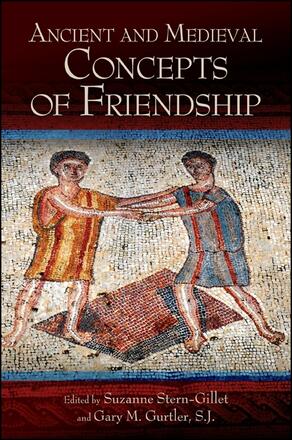
Ancient and Medieval Concepts of Friendship
Alternative formats available from:
Charts the stages of the history of friendship as a philosophical concept in the Western world.
Description
Focusing on Plato and Aristotle, the Stoics and Epicureans, and early Christian and Medieval sources, Ancient and Medieval Concepts of Friendship brings together assessments of different philosophical accounts of friendship. This volume sketches the evolution of the concept from ancient ideals of friendship applying strictly to relationships between men of high social position to Christian concepts that treat friendship as applicable to all but are concerned chiefly with the soul's relation to God—and that ascribe a secondary status to human relationships. The book concludes with two essays examining how this complex heritage was received during the Enlightenment, looking in particular to Immanuel Kant and Friedrich Hölderlin.
Suzanne Stern-Gillet is Professor of Ancient Philosophy at the University of Bolton and Honorary Research Fellow in the Department of Classics and Ancient History at the University of Manchester. She is the author of Aristotle's Philosophy of Friendship, also published by SUNY Press. Gary M. Gurtler, S. J. is Associate Professor of Philosophy at Boston College. He is the author of Plotinus: The Experience of Unity.
Reviews
". ..[a] fine volume. " — International Journal of the Platonic Tradition
"…a useful collection of essays … The contributors, along with the editors who have shepherded them, have done a good job engaging in conversation with the tradition of thinkers on friendship, and with one another. " — Polis
"…the arrangement and choice of subject matter will greatly serve scholars interested in the development of theories of friendship as well as the history of this discussion in the classical and post-classical world. " — Scripta Classica Israelica